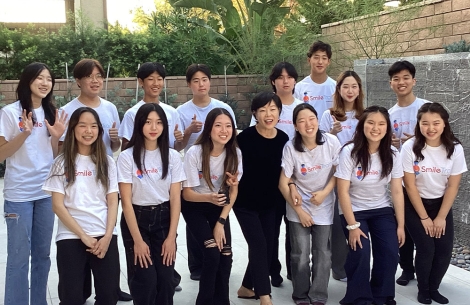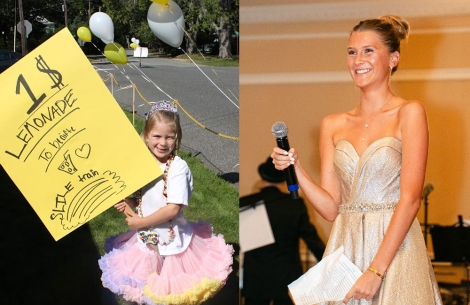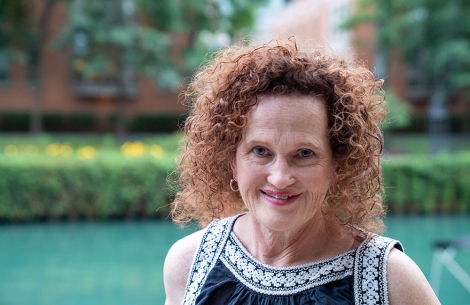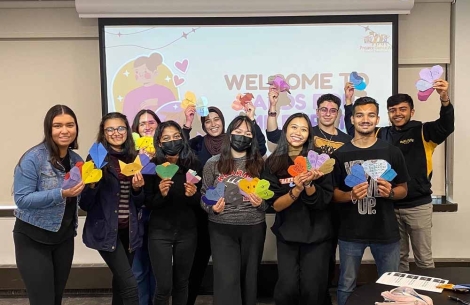Kate Donovan: Smile Train Helped Me Learn to Tell My Story
After Kate’s son passed away, she rarely spoke about him. Now, she’s sharing his story in her own words.
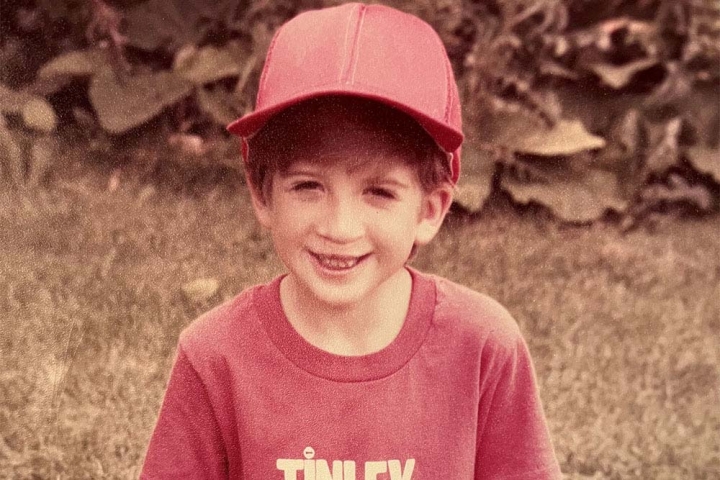
On October 9th, 1981, Kate Donovan’s son, David, passed away when he was six years old due to complications with his cleft. Until recently, Kate could hardly bring herself to talk about him with anyone. She joined Smile Train’s Cleft Community Advisory Council to support others in similar situations and to keep David’s memory alive. Today, she’s finally ready to tell his story, and her own story too.
A Mother’s Instinct
When I was pregnant with David, I was having these really awful nightmares. They were bloody and violent. I’ve always been a pretty positive person, but these dreams had me worried. They felt like some sort of sign.
I didn’t have access to ultrasounds then, so no one had any idea what was happening with the baby until he was born. We didn’t know if it was a boy, a girl, or any of that; it was really like the Dark Ages.
The night before he was born, a wonderful nurse was with me. I grabbed her hand and said, “I just know something’s wrong with the baby.” I told her about my dreams. She assured me that every mother goes through that. I knew that wasn’t right because my last two pregnancies were nothing like this. It was scary, but the nurse stayed with me through the night.
David was born the next day on May 11, Mother’s Day. The first thing I remember was the doctor telling a nurse, “Take the baby and go see where the father is,” so I didn’t see David right after birth. Instead, the doctors took my husband, Robert Bullard, and gave him the baby. When he came over to me, he said, “There’s something wrong with David, but whatever it is, you and I will take care of it. We don’t need to worry about what the rest of the world has to say. We’ll take care of him.”
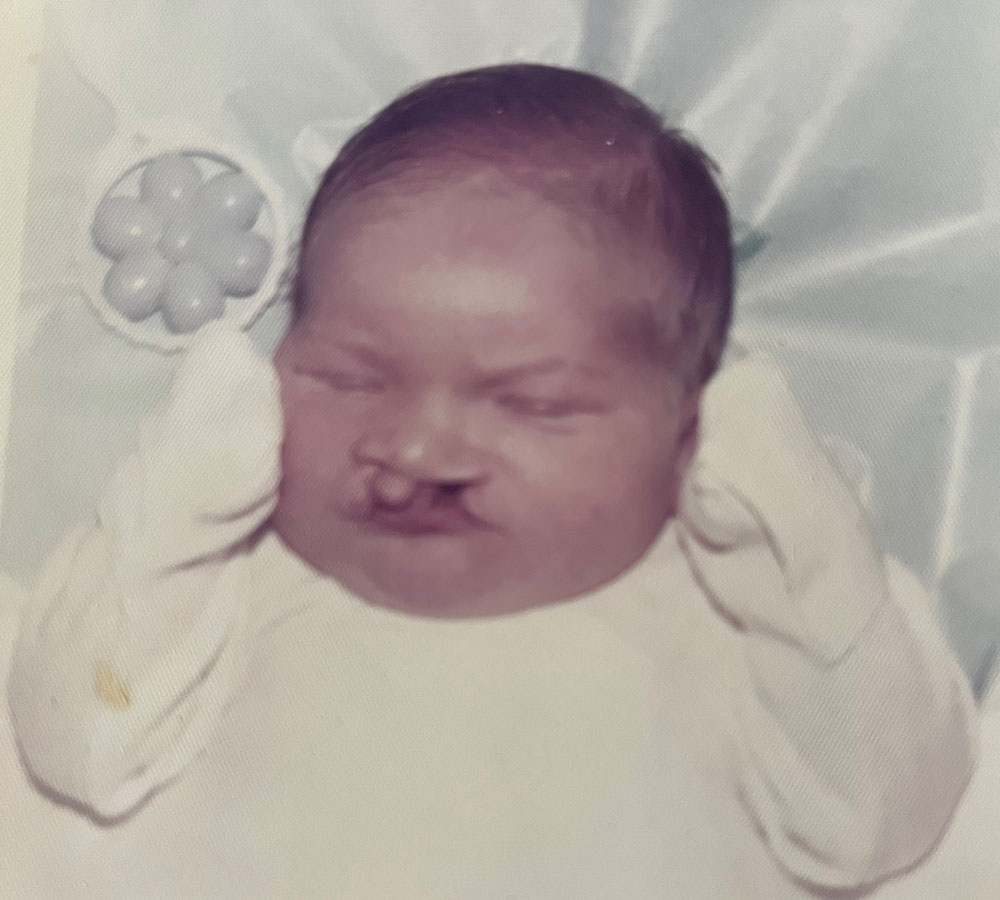
When I saw David, I was shocked. I felt betrayed by my own body, asking myself why this happened, what I did to my baby. I knew of some people who were born with clefts – you could tell by the way they spoke, but I’d never actually seen a cleft before.
That night, the nurse from before came in and said to me, “Boy, you really knew something was wrong, didn’t you?” I told her, “I just didn’t know what it was, and I certainly didn’t dream it was that!”
Early Support
David was the first baby with a cleft born at that hospital. No one was sure what to do. He couldn’t breastfeed and couldn’t drink or eat without choking. It was honestly hard to watch. I remember one doctor telling me not to worry. He said that David would be fine by the time he went to kindergarten. Kindergarten? It had been two days and I couldn’t even get this child to eat, and he was talking about kindergarten? I was crazy stressed.
Soon after, we were sent to Northwestern University Hospital for treatment. There, I learned that a lot of the information I had been given about clefts was bad. It happens to a lot of parents; they get told really wrong information.
At Northwestern, there was a fantastic team of doctors. We visited them weekly for the first year and a half of David’s life. We were so lucky. All of the specialists were wonderful. He had his first surgery at six weeks to close one side of his cleft. A few months later, he had surgery to close the other side. The hospital also gave him a palate expander. Step by step, we worked on his treatment.
We traveled far to get to the surgeons, but it was worth it. I could never complain. Whenever we went, my older kids, who were only three and five then, would go to a church daycare around the corner. My family was always very caring. I had incredible support.
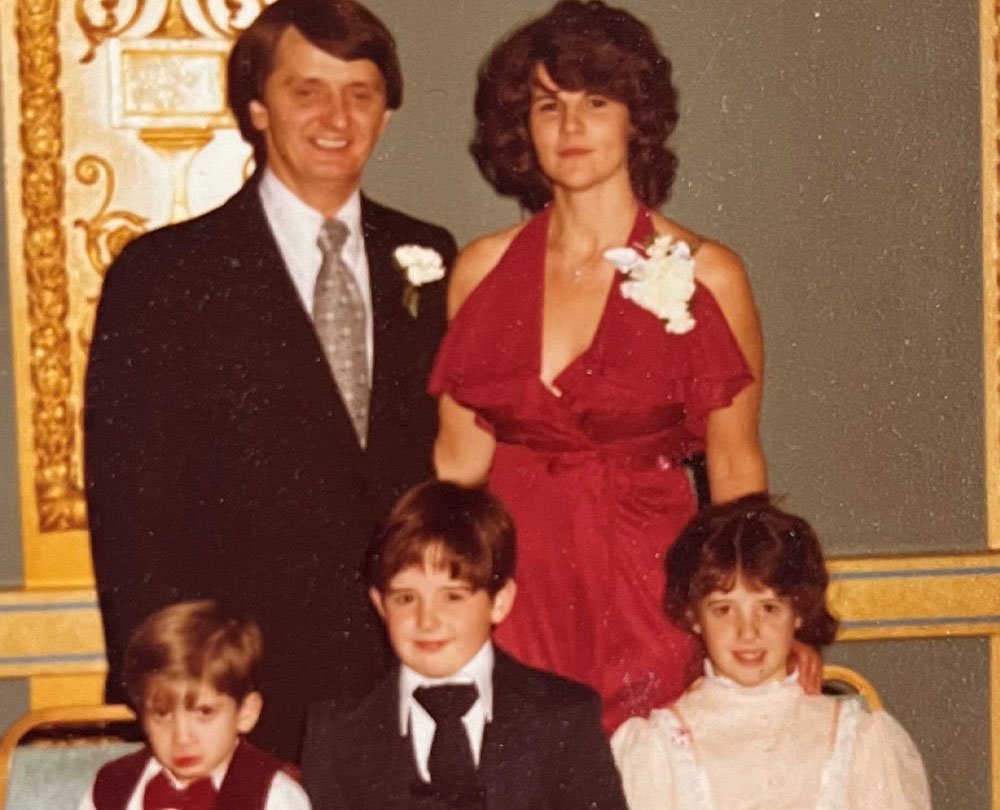
I remember the only time he ever really brought his cleft up. I was sitting at the table with him, and he said to me, “Why do I have to have a smashed face?” I just didn’t have the answers to those kinds of questions. I could never tell him why.
“Pain That I Never Even Imagined”
When David was six, he passed away. When he died, I experienced pain that I never even imagined. It was searing, like I was on fire. I kept asking God, “Why? How could this happen to him? How could this happen to the kid I loved so much?” David was funny, and he had a family who adored him. He was so full of life. I couldn’t believe he was gone.
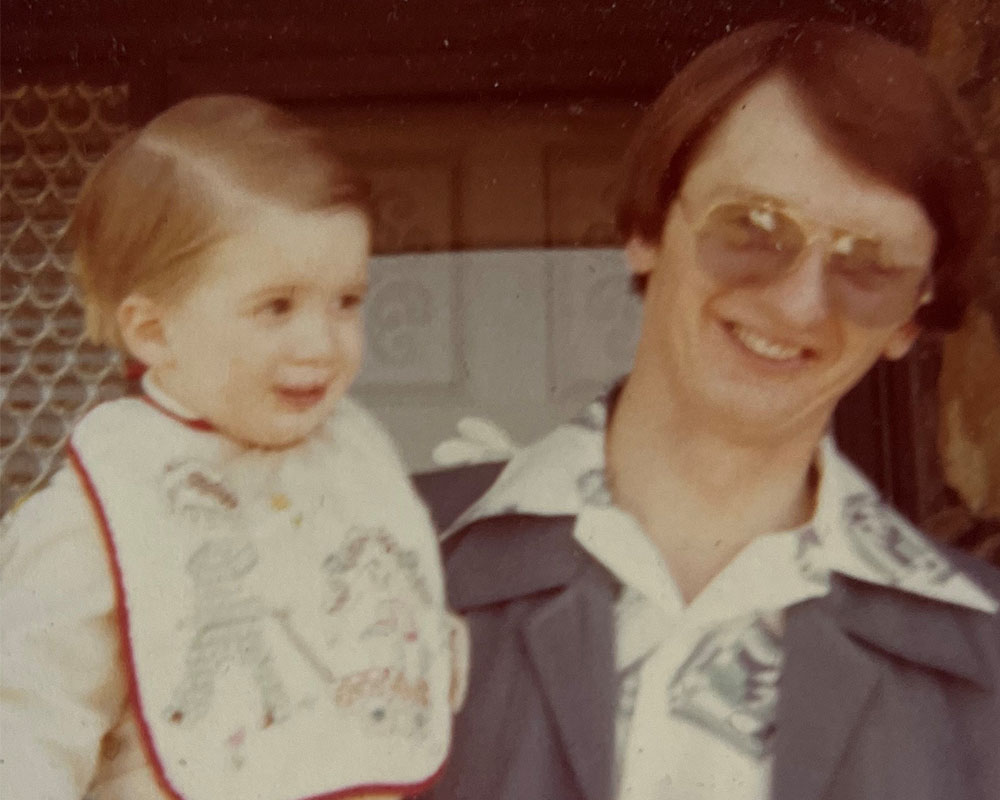
For the first year, it felt like a coating was over my body keeping me from believing it. It just didn’t feel real. My kids were the ones who brought me back. They didn’t know what to do. They were young. I pushed myself to get them the help they needed.
Finding a New Purpose
Four years later, I got pregnant with my daughter Kathryn. My family grew as my children started having their own kids.
We found Smile Train through an ad in the mail. For a long time, we just donated, but in 2012, my granddaughter Samantha was born with a cleft. Kathryn, her mom, joined Smile Train’s community programs. She also ran the Chicago Marathon with Team EMPOWER in 2017 for Samantha, which was our first real fundraiser. The following year, I ran it with both my daughters and one of my granddaughters. It was a blast!
The other fundraising we did was always great, too. Together, we created a group called D.A.V.I.D.S. Team, which stood for Donating to Amazing Volunteers in honor of David and Samantha. We had shirts and ended up organizing a pizza fundraiser that raised almost $5,000. It was so fulfilling.
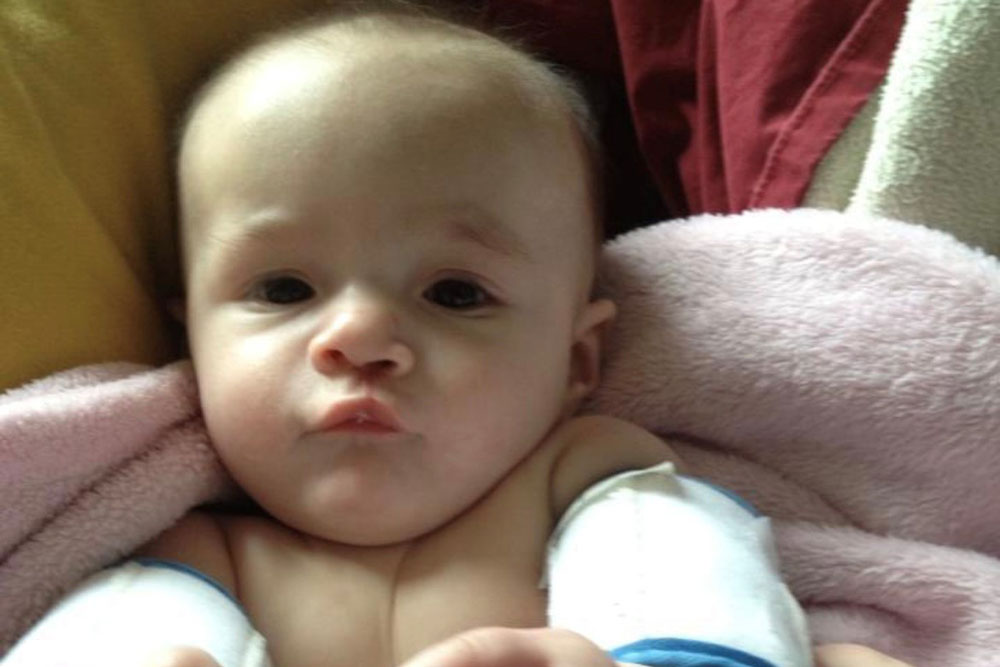
I ended up joining the Cleft Community Advisory Council (CCAC) because I saw people doing things in honor of their loved ones. I never did anything like that for David. I felt like I had more to give than just thinking about him. Everyone in the CCAC is so amazing. They’re all so positive and open about their hardships. It’s so refreshing. Being around people doing good work and giving back feels so good. It gives my life such purpose.
I grew up in a generation and a culture where people didn’t talk about what we struggled with. Last year I couldn’t even talk about David with my own family. I have grandkids who grew up not knowing they had another uncle. Smile Train has opened up my heart. It’s done so much for me because now we’re talking about him, and he’s here and he’s vibrant and he’s important.
My advice to cleft-affected people and their families is to keep going. Talk yourself through those bad days. Life is a fight, and I’m not saying it’s going to be easy. I’m saying it’s going to be worth it.
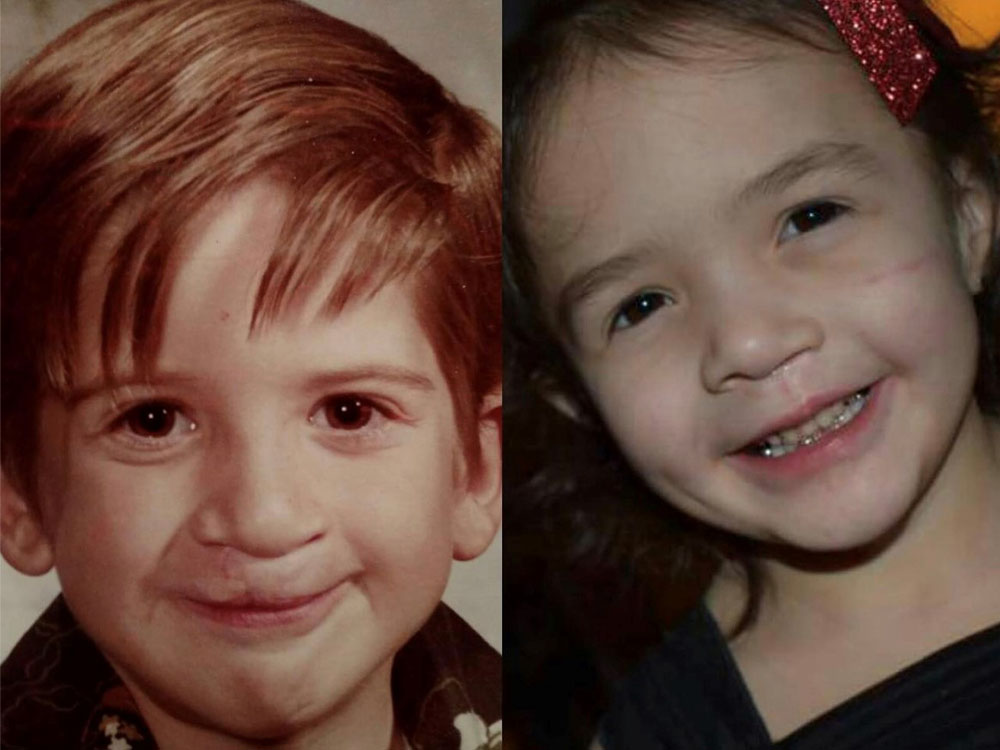
Want to get involved in supporting the cleft community?

